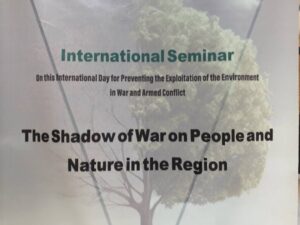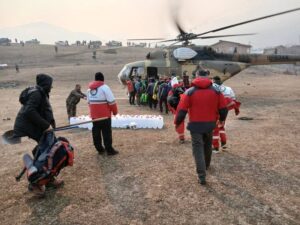“Throughout these days, physicians and medical staff demonstrated exemplary altruism and selflessness,” he said.
Zafarghandi noted that medical teams worked tirelessly around the clock during the war. “I personally visited several hospitals to witness the altruism of the medical staff. Their strength, resilience, and speed in crisis management were truly commendable,” he added.
The minister also discussed the devastating impact of sanctions on public health. Citing a recent article published in The Lancet, one of the world’s most prestigious journals, he said the study examined the effects of sanctions on public health in 152 countries between 1971 and 2025.
“According to the findings, sanctions have killed more than 1,564,000 people annually worldwide— a figure that surpasses the yearly death toll of wars. Most victims of sanctions are children aged 0–5, followed by people between 60–80 years old. In fact, 71 percent of deaths among children aged 0–15 have been attributed to sanctions. These figures reveal the direct impact of sanctions on health, access to medicine, and people’s economic conditions,” he said.
Turning to environmental challenges, Zafarghandi pointed out that nearly 500,000 deaths in Iran occur each year due to air pollution. On a global scale, around 700,000 children die annually from air pollution, he noted.
“These deaths are preventable,” he stressed. “I have proposed that the government expand the use of solar energy to address the country’s energy imbalance. Iran enjoys over 300 sunny days a year, far more than some countries with only 100 sunny days that have already developed ambitious 5- and 10-year solar energy plans.”
The minister further emphasized the need for road safety improvements. “Unfortunately, road accidents remain one of the leading causes of death in Iran,” he said. He also underlined the importance of promoting health literacy, pointing out that about 70 percent of patients in Iran only visit doctors when their illnesses have already advanced to stages 3 or 4.
“With simple education and greater use of self-care practices, this situation can be greatly improved,” Zafarghandi concluded.

International seminar on war’s consequences on people, nature held in Tehran
The event took place at Tarbiat Modares University in Tehran on Sunday to mark the International Day for Preventing the Exploitation of the Environment in






